DDSEP Plus is written and edited by internationally recognized experts in gastroenterology and hepatology. Chapters are updated annually. New questions are added quarterly. Take a few moments to meet our team of editors, chapter authors and question authors.
Our editors
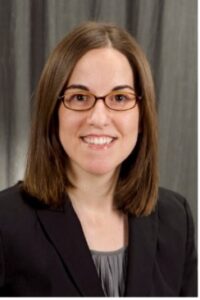
Danielle Marino, MD
Danielle Marino, MD, AGAF, is an associate professor of medicine in the Division of Gastroenterology and Hepatology at the University of Rochester Medical Center in Rochester, NY.
Dr. Marino received her medical degree from SUNY Buffalo School of Medicine, where she graduated summa cum laude and was inducted into the Alpha Omega Alpha medical honor society. She completed her internal medicine residency at Yale University School of Medicine, and her gastroenterology fellowship at the University of Rochester. Dr. Marino has clinical expertise in the management of inflammatory bowel disease and hereditary cancer syndromes, as well as all aspects of general gastroenterology and hepatology. She is the fellowship program director for the Gastroenterology and Hepatology Fellowship at the University of Rochester Medical Center and is also the co-director of the medical student course in gastroenterology. She is a member of the AGA Academy of Educators and has served as a co-editor for DDSEP 9 and currently DDSEP 10. She has recently been named the medical director of the Hereditary Cancer Screening and Risk Reduction Program at the Wilmot Cancer Center/University of Rochester Medical Center.
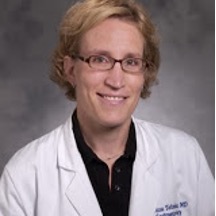
Melissa Teitelman, MD, MS
Melissa Teitelman is an associate professor of medicine at Duke University Medical Center. She is also the medical director at Duke Gastroenterology Clinic at Brier Creek, Duke GI Associate clinical chief of clinical affairs and editor of DDSEP 10. She graduated from Temple University School Of Medicine and then completed her internal medicine residency at Duke University Medical Center followed by a fellowship in gastroenterology at the University of Pennsylvania. She has a master’s in clinical epidemiology from the University of Pennsylvania. Dr. Teitelman is a member of the AGA MOC subcommittee and is an AGA fellow. She has a busy general gastroenterology practice with a special interest in ergonomics as it relates to performing endoscopies.
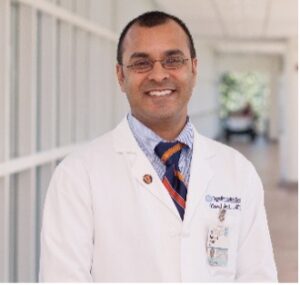
Neeral L. Shah, MD, AGAF
Neeral L. Shah, MD, AGAF, is an associate professor at the University of Virginia (UVA) School of Medicine, specializing in transplant hepatology, and director of UVA’s GI fellowship program. Dr. Shah’s clinical research focuses on coagulation in liver disease and viral hepatitis, and his medical education research interests include the use of technology in the classroom, and the concept of cognitive load. He completed training and chief residency at George Washington University, a gastroenterology fellowship at Lahey Clinic and a transplant hepatology fellowship at UVA.
Chapter Author Bios
Esophageal Disorders
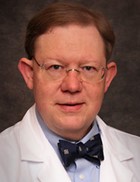
Benson T. Massey, MD, FACP
Benson Massey, MD, is a gastroenterology specialist in Milwaukee, WI and has over 39 years of experience in the medical field. Dr. Massey has extensive experience in Pancreatic Disease, Anal & Rectal Disorders, and Gastrointestinal Disorders. He graduated from Johns Hopkins U, School of Medicine in 1983. He is affiliated with Froedtert Hospital.
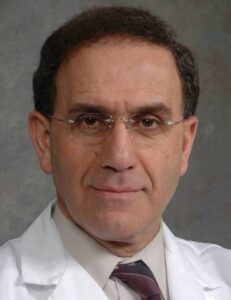
Reza Shaker, MD
Reza Shaker, MD, is a gastroenterologist in Milwaukee, Wisconsin and is affiliated with multiple hospitals in the area, including Froedtert Hospital and the Medical College of Wisconsin and Clement J. Zablocki Veterans Affairs Medical Center. Dr. Shaker completed his fellowship in gastroenterology at the Medical College of Wisconsin in 1988 and finished a residency in internal medicine at Kingsbrook Jewish Medical Center. His specialties are diagnosing and treating digestive disorders, such as stomach pain, ulcers, reflux, constipation, and Crohn’s disease.
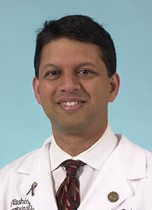
Prakash Gyawali, MD, AGAF, MRCP
Prakash Gyawali, MD, AGAF, MRCP, is currently a professor of medicine, director of neurogastroenterology and motility, and program director of gastroenterology fellowship training at Washington University School of Medicine, St. Louis. Dr. Gyawali’s academic interests include gastrointestinal motility, gastroesophageal reflux disease, and functional disorders. He directs gastrointestinal motility centers affiliated with Washington University and is involved in motility testing using high resolution manometry, esophageal ambulatory esophageal pH and impedance monitoring, wireless pH monitoring and endoscopic functional lumen imaging probe (endo-FLIP). Dr. Gyawali is actively involved in clinical research involving neurogastroenterology and motility, and has published over 250 original articles, invited reviews and book chapters.
Acid Diseases of the Stomach
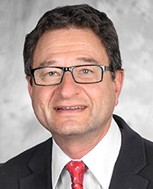
Steven F. Moss, MD, AGAF
Steven F. Moss, MD, AGAF, is a UK-trained physician-scientist whose research focuses on the role of H. pylori infection in gastric cancer. Dr. Moss is a clinical gastroenterologist at Rhode Island Hospital and Providence VA Medical Center and is director of Brown University’s gastroenterology fellowship training program.
Pancreatic Physiology and Disease
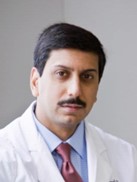
Vivek Kaul, MD
Vivek Kaul, MD, is the Segal-Watson professor of medicine and chief of the division of gastroenterology and hepatology at the University of Rochester Medical Center (URMC). Dr. Kaul’s clinical, research and medical education efforts are focused on therapeutic endoscopy, interventional endoscopic ultrasound, advanced Endoscopic retrograde cholangiopancreatography (ERCP), esophageal endotherapy for Barrett’s and Hepato-pancreatico-biliary disease. He has expertise in complex interventional endoscopy, especially in patients with GI cancers. Dr. Kaul co-directs the developmental endoscopy lab at URMC dedicated to education, training, and innovation in endoscopy.
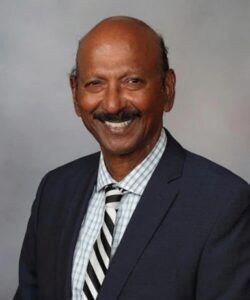
Santhi Swaroop Vege, MD, AGAF
Santhi Swaroop Vege, MD, AGAF, has more than 40 years of experience as a staff physician in academic gastroenterology and pancreatic diseases, with a special interest in pancreatitis. Dr. Vege has a proven track record in all three of the Mayo Clinic’s shields, clinical, research and education. He had been the director of pancreas group at Mayo Clinic and the program director of the advanced medical pancreatology fellowship (the only program in the country until recently) for many years. He is the 2023 president of International Association of Pancreatology. Dr. Vege has been on the editorial board of various journals including Gastroenterology and American Journal of Gastroenterology. He has received numerous institutional and national awards like Henry Plummer Distinguished Clinician Award at Mayo Clinic and the AGA’s pancreatic section’s Distinguished Clinical Research Mentor Award for 2023. Dr. Vege has published over 250 original papers including in the Journal of the American Medical Association, New England Journal of Medicine, Gastroenterology, and Gut as well as textbook chapters (Sleisenger, Up to Date), systematic reviews, and practice guidelines.

Allison L. Yang, MD, MPH
Allison Yang, MD, MPH, is an Assistant Professor of Medicine at Weill Cornell Medical College and Attending Physician at New York Presbyterian Hospital/Weill Cornell Medical Center. Dr. Yang is a clinical gastroenterologist with a focus on the multi-disciplinary care of patients with pancreatic disease. She received her BA from Columbia University in New York, her MD from the University of Illinois, and her MPH from the Harvard School of Public Health. She completed her internal medicine residency training at the Mayo Clinic, and her gastroenterology fellowship at Brigham and Women’s Hospital/Harvard Medical School. Her primary clinical and research interests are in the effective diagnosis and treatment of pancreatic disease including acute and chronic pancreatitis, recognition and treatment of cystic neoplasms of the pancreas, and early biomarkers for pancreatic cancer. Dr. Yang’s research interests also include the use of mobile health applications in advancing patient care, and the application of machine-learning algorithms in the management of pancreatic cysts. She performs upper endoscopy and colonoscopy and sees patients in the gastroenterology and pancreas clinics.
Diseases of the Biliary Tract
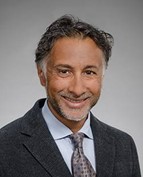
Rahul Kuver, MD
Rahul Kuver, MD, is the director of the University of Washington (UW) Medical Center gastroenterology fellowship program and an associate professor of gastroenterology and medicine. Dr. Kuver aims to provide compassionate and thoughtful care to patients using state-of-the-art knowledge that is evidence-based. He earned his MD at the University of Michigan in Ann Arbor. Dr. Kuver’s research interests include biliary epithelial cell biology and studies of the cellular and molecular processes involved in cholesterol transport, mucin secretion and carcinogenesis. His scientific research contributes to understanding a diverse array of disorders affecting the biliary system, such as gallstone disease, bile duct cancers and cystic fibrosis.
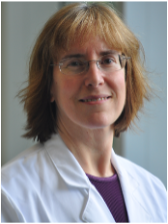
Lisa Gangarosa, MD, AGAF
Lisa M. Gangarosa MD, is a professor of medicine specializing in gastroenterology and hepatology. Dr. Gangarosa has extensive education and professional experience in the field, including a gastroenterology fellowship at Vanderbilt University and in the internal medicine residency program at the University of Pennsylvania. She holds an MD degree from Duke University School of Medicine. Dr. Gangarosa has been affiliated with various academic institutions, including the University of North Carolina-Chapel Hill and the Robert C. Byrd Health Sciences Center of West Virginia University. She has held positions as a professor of medicine, associate professor of medicine, and assistant professor of medicine. Throughout her career, Dr. Gangarosa has received numerous honors and awards for her contributions to the field of gastroenterology. She has been recognized as one of the Best Doctors in America and has received awards for excellence in teaching and mentoring. In addition to her clinical work, Dr. Gangarosa has contributed to the field through research and publication. She has authored and co-authored several books, chapters, and peer-reviewed articles on topics related to gastroenterology and hepatology.

Andrew Y. Wang, MD, AGAF
Andrew Y. Wang, MD, AGAF, is a professor of medicine and chief of the division of gastroenterology and hepatology at the University of Virginia (UVA). Dr. Wang graduated from the University of Virginia with a M.D. degree, completed his residency at Northwestern, and fellowships at University of Pennsylvania Hospital. He also serves as director of interventional endoscopy at the UVA Medical Center, and co-director of UVA’s advanced endoscopy fellowship program. Dr. Wang has been a pioneer in advanced GI endoscopy and has expertise in performing complex Endoscopic retrograde cholangiopancreatography (ERCP), interventional endoscopic ultrasound (EUS), Endoscopic mucosal resection (EMR)/endoscopic submucosal dissection (ESD), and esophageal/gastric Peroral endoscopic myotomy (POEM).
Viral Hepatitis

Christina C. Lindenmeyer, MD
Christina Lindenmeyer, MD, is an assistant professor and transplant hepatologist at Cleveland Clinic. Dr. Lindenmeyer graduated from Jefferson Medical College, completed her residency in internal medicine at Thomas Jefferson University Hospital and fellowships in gastroenterology and transplant hepatology at Cleveland Clinic. Her clinical and research interests focus on the care of critically ill patients with advanced liver disease, acute-on-chronic liver failure, and liver transplantation. Dr. Lindenmeyer is the founder and the co-director of Cleveland Clinic’s medical intensive liver unit (MILU) for patients with severe acute and chronic liver disease.
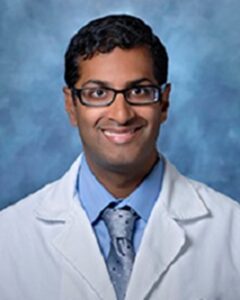
Vinay Sundaram MD, MSc
Vinay Sundaram, MD, MSc, was a medical advisor for the American Liver Foundation (ALF) and mentor to the Cedar-Sinai fellows at ALF’s academic debates. Dr. Sundaram was helping ALF lay the groundwork for a new peer-to-peer mentorship program in conjunction with the American Association for the Study of Liver Diseases (AASLD) which aims to connect seasoned medical professionals with early career physicians and investigators.
Dr. Sundaram passed away in July, 2022. AGA expresses its condolences to his family, friends, and colleagues at ALF.
Metabolic, Hereditary, Inflammatory, and Vascular Diseases of the Liver

Karin Andersson, MD
Karin Andersson, MD, MPH, is a hepatologist practicing at Massachusetts General Hospital. She specializes in hepatology and has a wide range of clinical expertise in liver disease. Andersson obtained her medical degree from Yale Medical School. Following medical school, she completed her internal medicine residency training at Brigham and Women’s Hospital. She then pursued fellowships in gastroenterology and advanced hepatology/transplant hepatology at Massachusetts General Hospital. In addition to her medical training, she holds a Master of Public Health (MPH) degree in International Health from the Harvard Chan School of Public Health. With her extensive training and background, Dr. Andersson is well equipped to diagnose and treat various liver diseases. Her clinical practice covers a broad spectrum of conditions, including viral hepatitis, autoimmune liver disease, biliary diseases, benign liver lesions, liver disease in pregnancy, abnormal liver function tests, cirrhosis, fatty liver disease, and alcoholic liver disease. She has a particular interest in hepatitis B infection and focuses on providing specialized care to individuals affected by this condition.
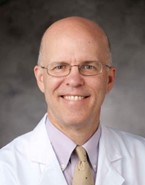
Carl L. Berg, MD
Carl Berg, MD is a hepatologist specializing in the care of patients with advanced liver disease and those in need of transplantation. He is a tenured professor of medicine at Duke University and the medical director of abdominal transplantation. In this role, he oversees various transplant programs, including liver transplant, kidney transplant, small bowel transplant, pancreas transplant, and vascular composite allograft programs. Berg obtained his undergraduate degree from Williams College and earned his medical degree from Washington University School of Medicine. He completed his fellowship training at Brigham and Women’s Hospital and Harvard Medical School, where he gained extensive expertise in hepatology and transplantation.
Cirrhosis and Liver Transplantation
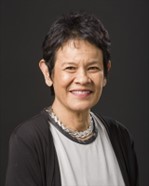
Guadalupe Garcia-Tsao, MD
Garcia-Tsao, MD, is an esteemed medical professional serving as the chief of digestive diseases for the VA-Connecticut Healthcare System and as the director of the clinical and translational core of the Yale Liver Center at Yale School of Medicine. Her work primarily focuses on liver diseases, particularly cirrhosis, and she has made significant contributions to the field through her clinical studies and research efforts. Dr. Garcia-Tsao has conducted extensive clinical studies to improve the management and treatment of patients experiencing cirrhosis complications. These studies have aimed to enhance patient outcomes and optimize care strategies for individuals with advanced liver disease. Through her research, she seeks to identify innovative approaches to address the complex challenges associated with cirrhosis and its complications.
GI Diseases in Pregnancy

Reena Chokshi, MD
Reena V. Chokshi, MD, is an accomplished medical professional serving as an assistant professor of medicine and the director of gastrointestinal motility at Baylor College of Medicine. With a focus on gastrointestinal motility disorders and women’s GI health, Dr. Chokshi brings specialized expertise to her field. She earned her MD from the University of Texas Health Science Center at San Antonio. Following medical school, she completed her residency in internal medicine at the Hospital of the University of Pennsylvania, where she gained comprehensive training in the diagnosis and management of various medical conditions. She then pursued a fellowship in gastroenterology at Washington University in St. Louis, where she further specialized in gastrointestinal disorders.

Carla Brady, MD, MHS
Carla W. Brady, MD, MHS, is an associate professor within the division of gastroenterology at Duke University Medical Center. Dr. Brady is a transplant hepatologist with a focus on the management of complex liver disease and liver transplant-related medical care in women. She earned her bachelor’s and medical degrees from the University of Virginia and completed her internal medicine residency and gastroenterology fellowship at Drexel University College of Medicine in Philadelphia. She also earned a master’s in clinical research from Duke University School of Medicine.

Bincy P. Abraham, MD, AGAF
Bincy P. Abraham, MD, MS, AGAF, is the distinguished professor and director of the Fondren inflammatory bowel disease (IBD) program at the Underwood Digestive Diseases Center of Houston Methodist Hospital. Dr. Abraham is also the program director for the gastroenterology fellowship at Houston Methodist Hospital. She earned her medical degree from the University of Texas Medical Branch in Galveston, where she continued with residency training in internal medicine and fellowship in gastroenterology. During fellowship, Dr. Abraham received specialized training in IBD and earned a masters in clinical investigation. She also completed a national visiting fellow IBD rotation program through the Crohn’s and Colitis Foundation in Cedars Sinai Hospital in Los Angeles.

Joseph Ahn, MD, AGAF
Joseph Ahn, MD, MS, MBA, AGAF, is a distinguished transplant hepatologist practicing at Oregon Health & Science University (OHSU) in Portland, Oregon. Dr. Ahn holds the position of professor of medicine and serves as the section head of hepatology, demonstrating his expertise and leadership in the field. He earned his medical degree from Northwestern University and completed his residency in internal medicine at the University of Chicago. Following his residency, he pursued fellowship training in hepatology and gastroenterology at Northwestern University. This comprehensive training equipped him with the knowledge and skills necessary to specialize in the diagnosis and management of liver diseases.
Diarrhea and Constipation

Lawrence Schiller, MD
Lawrence Schiller, MD is a clinical professor at the University of Texas Southwestern Medical Center. Dr. Schiller serves on the board of directors at Digestive Health Associates of Texas in Dallas and is the program director of the gastroenterology fellowship. He is a past president of the American College of Gastroenterology (ACG) and is actively involved in various medical organizations including the AGA, American Federation for Clinical Research, and American Motility Society. Dr. Schiller has co-authored evidence-based systematic reviews for the ACG Institute and has a special interest in colon cancer screening, gastroesophageal reflux disease, irritable bowel syndrome, Crohn’s disease, and motility disorders. He received the David L. Sun Lectureship at the ACG postgraduate course in 2001 and the Marcel Patterson-Robert Nelson Award from the Texas Society for Gastroenterology and Endoscopy in 2007. He completed his medical degree at Jefferson Medical College, followed by residency at Temple University Hospital, and his gastroenterology fellowship training at the University of Texas Health Science Center.
Gastrointestinal Motility

Richard K. Wood, Jr., MD
Richard Wood Jr., MD, is a gastroenterologist practicing at Duke University School of Medicine. With expertise in various areas of gastroenterology, Dr. Wood provides comprehensive care to patients with a wide range of gastrointestinal conditions. He obtained his medical degree from Mount Sinai School of Medicine in 2002. Following medical school, he completed his residency in internal medicine at Boston University Medical Center in 2006, where he gained a strong foundation in general medicine. He then pursued a fellowship in gastroenterology at the Hospital of the University of Pennsylvania in 2009, further specializing in the field. Dr. Wood’s clinical interests encompass several areas within gastroenterology. He specializes in esophagus disease, gastrointestinal cancer, and gastrointestinal functional and motility disorders. This expertise allows him to diagnose and treat conditions such as gastroesophageal reflux disease (GERD), Barrett’s esophagus, swallowing disorders, gastrointestinal tumors, and motility disorders affecting the digestive tract.
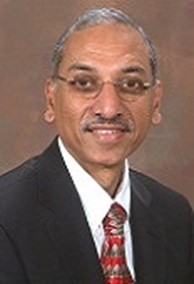
Satish SC Rao, MD, PhD, AGAF
Satish Rao, MD, PhD, AGAF, is the J. Harold Harrison, MD, Distinguished University Chair in Gastroenterology at the Medical College of Georgia in Augusta. Dr. Rao is also the director of neurogastroenterology/motility at its Digestive Health Clinical Research Center Medical. His research interests focus on the pathophysiology and treatment of irritable bowel syndrome (IBS), food intolerance, gas and bloating especially Small Intestinal Fungal Overgrowth (SIFO) and Small Intestinal Bacterial Overgrowth (SIBO), dyssynergia defecation and fecal incontinence. Dr. Rao has pioneered several new techniques and devices and has received several patents. He pioneered the technique of biofeedback therapy for dyssynergic defecation, and neuromodulation therapy for fecal incontinence.
Gastrointestinal Infections of the Small Intestine and Colon
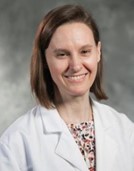
Amy Elizabeth Barto, MD
Amy Barto, MD, specializes in gastroenterology and serves as an associate professor of Medicine at Duke University. Dr. Barto completed a fellowship in gastroenterology at Lahey Hospital and Medical Center in 2006 and an internal medicine internship and residency in 2003. She graduated from the University of Connecticut Medical School in 2000. Dr Bato research interest include adult inflammatory bowel diseases such as Crohn’s disease and ulcerative colitis.
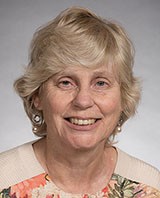
Christina Surawicz, MD
Christina Surawicz, MD, is a professor of medicine at the University of Washington School of Medicine. Dr. Surawicz served as chief of GI at Harborview Medical Center in Seattle for 20 years and has practiced there since 1981. She is also a past president of the American College of Gastroenterology. Dr. Surawicz’s expertise is in treating patients with recurrent C. difficile infection with fecal microbiota transplant. She is widely recognized as a clinician and researcher, and has been a mentor for medical students, residents, and faculty across the U.S.
Gastrointestinal Bleeding

Christen K. Dilly, MD, MEHP, AGAF
Christen K. Dilly, MD, MEHP, AGAF, is the director of the endoscopy and the medical weight loss programs at the Roudebush VA Medical Center in Indianapolis. She graduated from Rush Medical College and did her internal medical residency at Vanderbilt University. Dr. Dilly is also an assistant dean for graduate medical education and director of the clinician educator training pathway at Indiana University School of Medicine.
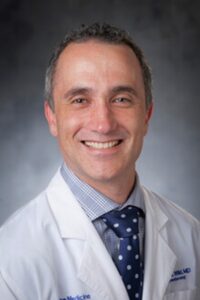
Daniel Wild, MD, AGAF
Daniel Wild, MD, AGAF, is an associate clinical chief and the director of small bowel endoscopy in the division of gastroenterology at Duke University Medical Center. Dr. Wild’s clinical focus is GI bleeding, video capsule endoscopy and double balloon enteroscopy. Dr. Wild is a reviewer of the Small Bowel chapter of DDSEP 10.
Inflammatory Bowel Disease
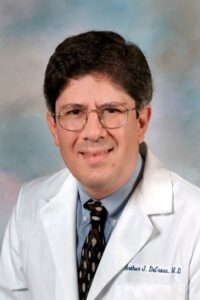
Arthur J. DeCross, MD, AGAF
Arthur DeCross, MD, AGAF, is the director of the IBD Center and a professor of medicine in the division of gastroenterology and hepatology at the University of Rochester Medical Center (URMC). A career clinical educator, Dr. DeCross is also the director of the GI fellowship training program at URMC, and director of a medical students’ gastroenterology course for over 20 years. He is a co-chair of the AGA Education and Training Committee and has also served on the Gastroenterology Training Examination Subcommittee, the Maintenance of Certification Subcommittee, the Training Subcommittee, and as liaison to the American Board of Internal Medicine Committee on Certification and Re-certification. Dr. DeCross has also been a director of the AGA Academy of Educators, associate editor for DDSEP 6, and editor-in-chief for DDSEP 7.
Gastrointestinal Cancers
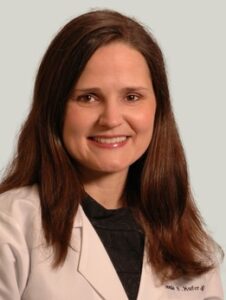
Sonia S. Kupfer, MD, AGAF
Sonia Kupfer, MD, AGAF, is a distinguished gastroenterologist who specializes in the diagnosis and treatment of various digestive system disorders. Dr. Kupfer is affiliated with the University of Chicago Medicine, where she serves as a physician in the Comprehensive Cancer Risk and Prevention Clinic and the Celiac Center. She completed her medical degree at the University of Chicago Pritzker School of Medicine, demonstrating her strong foundation in medical education. She then pursued her residency at the University of Chicago Medicine, further solidifying her clinical expertise. Within her practice, Dr. Kupfer has a particular focus on diagnosing and treating patients with genetic disorders, specifically hereditary gastrointestinal cancer syndromes and celiac disease. Her work in the Comprehensive Cancer Risk and Prevention Clinic involves evaluating and managing individuals who have a high risk of developing gastrointestinal cancers due to their genetic predisposition.
Nutrition, Obesity and Eating Disorders

Lena B. Palmer, MD, MSCR
Lena B. Palmer MD, MSCR, is with the Southwest Louisiana Veterans Healthcare System. Dr. Palmer has expertise in gastroenterology and nutrition, and advanced training in epidemiology, health services research, and quality improvement. She has worked closely with the AGA on its Advocacy Day’s and with the Women’s Committee and Trainee and Young GI Committee. Dr. Palmer’s clinical interests include parenteral and enteral nutrition, malabsorption, medical nutrition therapy, nutrition complications of GI diseases, celiac disease, bacterial overgrowth syndromes, and diarrheal diseases.
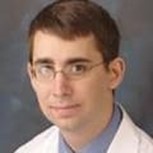
Michael Sprang, MD
Michael Sprang, MD, is a gastroenterology specialist in Maywood, IL. Dr. Sprang graduated from Loyola University Chicago Stritch School of Medicine in 2005 and completed his residency at McGaw Medical Center. He practices at Loyola University Medical Center and Edward Hines Jr. VA Hospital, and is affiliated with NorthShore University Health Systems, Memorial Medical Center, and OSF St. Joseph Medical Center.

Jessica Bartfield, MD
Jessica Bartfield, MD, is an obesity medicine specialist at Wake Forest Baptist Medical Center in North Carolina. Dr. Bartfield completed a fellowship for obesity medicine and clinical nutrition at the University of Alabama, Birmingham in 2010, and an internal medicine residency at Beth Israel Deaconess Medical Center/Harvard Medical School in 2008. She graduated from Loyola University Stritch School of Medicine in 2005. Dr. Bartfield is board certified by the American Board of Internal Medicine, the American Board of Obesity Medicine, and the National Board of Physician Nutrition Specialists.

Shelby Sullivan, MD
Shelby Sullivan, MD, is the director of the metabolic and bariatric program in the division of gastroenterology and hepatology at the University of Colorado School of Medicine. Dr. Sullivan is the current chair of the Board of the Association for Bariatric Endoscopy, a division of the American Society for Gastrointestinal Endoscopy. Her clinical interest is in the treatment of obesity.
Issues in Pediatric Gastroenterology
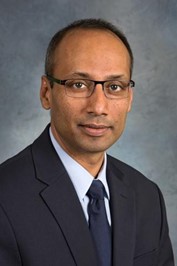
Rishi Gupta, MD
Rishi Gupta, MD, is a pediatric gastroenterologist at Golisano Children’s Hospital and associate professor of pediatrics at the University of Rochester School of Medicine. He attended medical school at University College of Medical Sciences, University of Delhi, India. He then completed his residency in pediatrics from the University of Delhi along with a pediatric registrar ship. Dr. Gupta has been active in education and research. He has been on the board of GI-PREP team at American Academy of Pediatrics (AAP) to create learning materials for gastroenterologists. He has also served in the Gastroenterology Board at American Board of Pediatrics (ABP). Dr Gupta has been a sub-specialty editor for AAP-Ohio chapter. He has been actively mentoring medical students, pediatric and family medicine residents and gastroenterology fellows throughout his career. He has worked on various research projects with personal grants as well as joint collaborations with other institutions. He has also actively mentored medical students, pediatric and family medicine residents and gastroenterology fellows throughout his career.
Small Bowel

Rupa Mukherjee, MD
Rupa Mukherjee, MD, is an assistant professor of medicine at Beth Israel Deaconess Medical Center in Boston. With her extensive education and training, Dr. Mukherjee brings a wealth of knowledge and expertise to her field. Dr. Mukherjee earned her medical degree from Johns Hopkins University School of Medicine in 2004, which provided her with a strong foundation in medical education. She then completed her internship and residency at Yale New Haven Medical Center, where she gained comprehensive training in internal medicine. Following her residency, she pursued fellowships at New York Presbyterian Hospital and Beth Israel, further specializing in gastroenterology. Dr. Mukherjee’s research interests lie in several areas, including celiac disease, gluten sensitivity, and general gastroenterology. Celiac disease is an autoimmune disorder triggered by the ingestion of gluten, and Dr. Mukherjee’s research focuses on advancing the understanding of this condition. Additionally, she investigates gluten sensitivity and its impact on the gastrointestinal system. Her research contributes to the knowledge and management of these conditions, improving patient care.

Daniel Leffler, MD, MS
Daniel Leffler, MD, MS is a prominent medical professional in celiac disease. He currently serves as the director of clinical research at the Celiac Center at Beth Israel Deaconess Medical Center and holds the position of assistant professor of medicine at Harvard Medical School. Dr. Leffler’s academic journey includes a master’s degree in nutrition from Columbia University, which provided him with a strong foundation in understanding the relationship between diet and health. He has dedicated his career to clinical care and clinical and translational research in celiac disease. Some of his notable projects have focused on factors influencing dietary adherence in celiac disease, non-responsive celiac disease, clinical trial design, immunologic changes associated with celiac disease activation, and the development of clinical algorithms for diagnosis and treatment. Dr. Leffler’s research aims to improve patient outcomes and enhance understanding of the disease.

Daniel Wild, MD, AGAF
Daniel Wild, MD, AGAF, is an associate clinical chief and the director of small bowel endoscopy in the division of gastroenterology at Duke University Medical Center. Dr. Wild’s clinical focus is GI bleeding, video capsule endoscopy and double balloon enteroscopy. Dr. Wild is a reviewer of the Small Bowel chapter of DDSEP 10.
Chapter Authors Financial Disclosure
Chapter 1 – Esophageal Disorders
Rena Yadlapati, MD
Consulting: Ironwood Pharmaceuticals, Medtronic, Phathom, StatLink
Grant/Research Support: Ironwood Pharmaceuticals Medtronic
Board Membership: RJS Mediagnostix
Bryan Sauer, MD, AGAF
Consulting Takeda Pharmaceuticals
Watermark Research Partners:
Chapter 2 – Acid Diseases of the Stomach
David Leiman, MD
Speaking and Teaching: Medtronic
Grant/Research Support: Takeda
John Clarke, MD, AGAF
Advisory Committees or Review Panels: Alnylam, Isothrive, Medtronic, Pfizer, Regeneron, Sanofi
Grant/Research Support: Ironwood
Chapter 3 – Pancreatic Physiology and Disease
Darshan Kothari, MD
Disclosed no relevant financial relationships
Aparna Repaka, MD
Disclosed no relevant financial relationships
Chapter 4 – Diseases of the Biliary Tract
Daniel Strand, MD
Disclosed no relevant financial relationships
Dushant Uppal, MD
Disclosed no relevant financial relationships
Chapter 5 – Viral Hepatitis
Janice Jou, MD, MHS
Disclosed no relevant financial relationships
Nicolas Intagliata, MD
Disclosed no relevant financial relationships
Chapter 6 – Metabolic, Hereditary, Inflammatory, and Vascular Diseases of the Liver
Mike Kriss, MD
Disclosed no relevant financial relationships
Jonathan Stine, MD
Disclosed no relevant financial relationships
Chapter 7 – Cirrhosis and Liver Transplantation
Matthew Stotts, MD
Disclosed no relevant financial relationships
Kathleen Viveiros, MD
Disclosed no relevant financial relationships
Chapter 8 – GI Diseases in Pregnancy
Rich Bloomfeld, MD
Speaking/Teaching: AbbVie
Claire Meyer, MD
Disclosed no relevant financial relationships
Chapter 9 – Diarrhea and Constipation
Stacy Menees, MD
Disclosed no relevant financial relationships
Brandon Sprung, MD
Disclosed no relevant financial relationships
Chapter 10 – Gastrointestinal Motility
Ami Patel, MD
Disclosed no relevant financial relationships
Nitin Ahuja, MD
Consulting: GlaxoSmithKline Consumer Healthcare, Medtronic
Advisory Committees or Review Panels: Laborie, Takeda
Grant/Research Support: Nestle, Vanda Pharmaceuticals
Chapter 11 – Gastrointestinal Infections of the Small Intestine and Colon
Sarah McGill, MD
Grant Support: Olympus America, Finch Pharmaceuticals, Abbott Laboratories
Melissa Hershman, MD
Disclosed no relevant financial relationships
Chapter 12 – Gastrointestinal Bleeding
Hamita Sachar, MD
Disclosed no relevant financial relationships
Michelle Hughes, MD
Consulting: Motus, GI
Chapter 13 – Inflammatory Bowel Disease
Jason Ken Hou, MD, AGAF
Grant/Research Support: Arena, Celgene, Eli-Lilly, Genentech, Janssen, Lycera, Pfizer, Redhill Biosciences
Bharati Kochar, MD
Advisory Committees or Review Panels: Pfizer, Inc
Chapter 14 – Gastrointestinal Cancers
Seth Crockett, MD, MPH, AGAF
Disclosed no relevant financial relationships
Aimee Lee Lucas, MD, MS, AGAF
Consulting:
Grant/Research Support: Immunovia AB:
Chapter 15 – Nutrition, Obesity and Eating Disorders
Octavia Pickett-Blakely, MD
Disclosed no relevant financial relationships
Justin Crocker, MD
Disclosed no relevant financial relationships
Chapter 16 – Issues in Pediatric Gastroenterology
Michael Winter, MD
Consulting: Precision Medicine
Advisory Committee or Review Panel: AbbVie, Brystol Myers Squibb
Deborah A. Goldman, MD, AGAF
Disclosed no relevant financial relationships
Chapter 17 – Small Bowel Disease
Iris Vance, MD
Disclosed no relevant financial relationships
Justin Sewell, MD, PhD, MPH
Disclosed no relevant financial relationships
DDSEP Plus Question Author Bios and Photos
Chapter 1 – Esophageal Disorders
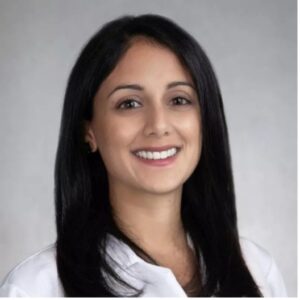
Rena Yadlapati, MD
Rena Yadlapati, MD, is a board-certified gastroenterologist who specializes in esophageal diseases. Dr. Yadlapati is medical director of the Center for Esophageal Diseases at UC San Diego Health and treats gastroesophageal reflux disease (GERD) and related conditions such as voice complaints (laryngopharyngeal reflux), swallowing disorders such as achalasia and esophageal motility disorders, eosinophilic esophagitis, and Barrett’s esophagus.
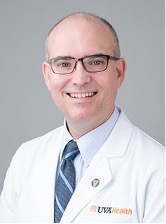
Bryan Sauer, MD, AGAF
Bryan Sauer, MD, AGAF, focuses primarily on eosinophilic esophagitis, endoscopic ultrasound, Barrett’s esophagus, and advanced endoscopic procedures at UVA Health. In 2016, Dr. Sauer founded the UVA adult multidisciplinary eosinophilic esophagitis program. In 2019, he started a Guatemala endoscopy program and leads clinical care teams to the country. Dr. Sauer graduated from Western Michigan University before attending medical school at the University of Wisconsin.
Chapter 2 – Acid Diseases of the Stomach
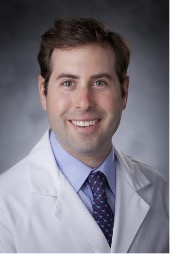
David Leiman, MD
David Leiman, MD, is an assistant professor of medicine at Duke University’s division of gastroenterology. His clinical practice focuses on the evaluation and management of patients with esophageal and swallowing disorders, including gastroesophageal reflux disease (GERD), eosinophilic esophagitis (EoE), Barrett’s esophagus and achalasia. Dr. Leiman has a strong academic and professional interest in health outcomes and quality of care, particularly as they relate to common gastrointestinal issues like colon cancer screening and acid peptic diseases.

John Clark, MD, AGAF
John Clarke, MD, AGAF, is the director of the esophageal program in the gastroenterology and hepatology division at Stanford University. Previously, Dr. Clarke was an associate professor at John Hopkins University. He also served as director of esophageal motility and director of gastrointestinal motility at Hopkins. His clinical areas of expertise include achalasia, dysphagia, eosinophilic esophagitis, esophageal dysmotility, gastroesophageal reflux disease, gastroparesis, GI-manifestations of scleroderma and GI dysmotility. He has lectured internationally, authored over 25 textbook chapters, serves on the educational affairs committee of the American College of Gastroenterology, and has won several major teaching awards. Dr. Clarke’s research focuses on optimization and characterization of diagnostic studies to evaluate motility disorders, as well as the relationship between therapeutic endoscopic techniques and treatment of motility disorders. He was an investigator on the NIH Gastroparesis Consortium and is also a former recipient of AGA’s Don Castell Award.
Chapter 3 – Pancreatic Physiology and Disease
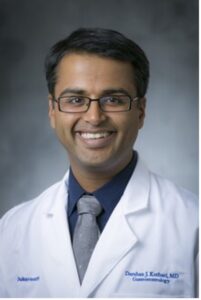
Darshan Kothari, MD
Darshan Kothari, MD, is an assistant professor of medicine at Duke University’s division of gastroenterology. Dr. Kothari specializes in diagnosing and treating digestive disorders including stomach pain, ulcers, reflux, constipation, and Crohn’s disease.
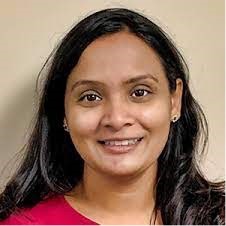
Aparna Repaka, MD
Aparna Repaka is a gastroenterologist and therapeutic endoscopist and director of advanced endoscopy with the Veterans Affairs (VA) Boston Healthcare System. Dr. Repaka is also an assistant professor at Boston University. Her interests include pancreatic-biliary diseases, GI oncology, obesity medicine and lifestyles. She is a member of the American Society for Gastrointestinal Endoscopy and serves on its training committee.
Chapter 4 – Diseases of the Biliary Tract
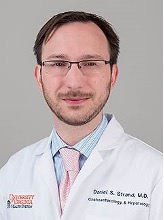
Dan Strand, MD
Daniel Strand, MD, FASGE, is a gastroenterologist and director of pancreatobiliary endoscopy at UVA Health. Dr. Strand specializes in the treatment of patients who need advanced GI endoscopic procedures with a focus on complicated diseases of the pancreas, biliary tract, and luminal GI tract (esophagus, stomach, small intestine, or colon).
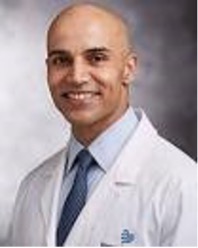
Dushant Uppal, MD
Dushant Uppal, MD, is a gastroenterologist at UVA Health. Dr. Uppal specializes in diagnosing and treating digestive disorders, such as stomach pain, ulcers, reflux, constipation, and Crohn’s disease. He is also an instructor of medicine in the UVA Health division of gastroenterology and hepatology.
Chapter 5 – Viral Hepatitis

Janice Jou, MD, MHS
Janice Jou, MD, MHS, is an associate professor of medicine at the Oregon Health and Science University division of gastroenterology and hepatology. Dr. Jou specializes in digestive health and liver disease. She graduated from Northwestern University’s Feinberg School of Medicine.
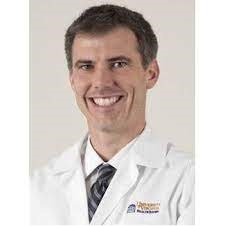
Nicolas Intagliata, MD
Nicolas Intagliata, MD, is an assistant professor of medicine at the University of Virginia division of gastroenterology and hepatology. Dr. Intagliata is board-certified in internal medicine, gastroenterology, and transplant hepatology.
Chapter 6 – Metabolic, Hereditary, Inflammatory, and Vascular Diseases of the Liver

Mike Kriss, MD
Mike Kriss, MD, is an assistant professor of medicine at the University of Colorado Anschutz Medical Campus. His research interests are focused on developing a better understanding of the immune system within the liver and curing the hepatitis C virus.
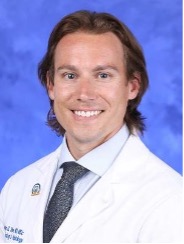
Jonathan Stine, MD
Jonathan Stine, MD, is an associate professor of medicine and public health sciences research director at Penn State Health Liver Center. Dr. Stine is an internationally recognized liver expert with a research and clinical focus on nonalcoholic fatty liver disease and exercise. He has authored more than 70 peer-reviewed papers, including multinational consensus guidelines, and several book chapters.
Chapter 7 – Cirrhosis and Liver Transplantation
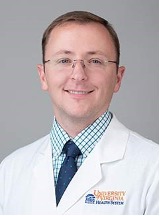
Matt Stotts, MD
Matt Stotts, MD, is a liver specialist at UVA Health. Dr. Stotts’ interests include caring for patients with a wide range of liver disorders, including viral hepatitis, fatty liver disease, Wilson’s disease, hemochromatosis, alcohol-related liver disease, autoimmune liver disease, primary sclerosing cholangitis (PSC) and primary biliary cholangitis (PBC), and cirrhosis. He has a background in nutrition and received a graduate degree from Columbia University.

Kathleen Viveiros, MD
Kathleen Viveiros, MD, is a hepatologist with the division of gastroenterology, hepatology and endoscopy at Brigham and Women’s Hospital, and has an academic appointment at Harvard Medical School. Dr. Viveiros’ clinical interests are autoimmune hepatitis, cirrhosis, fatty liver, hepatitis, and primary biliary cholangitis (PBC).
Chapter 8 – GI Diseases in Pregnancy
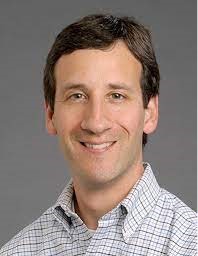
Rich Bloomfeld, MD
Richard Bloomfeld, MD, professor of gastroenterology and director of the inflammatory bowel disease (IBD) clinic at Wake Forest University’s school of medicine. Dr. Bloomfeld specializes in biologic therapy for IBD, Crohn’s disease, Ulcerative colitis, Clostridium difficile (C. difficile), fecal microbiota transplantation, GI bleeding, colorectal cancer screening, capsule endoscopy, and comprehensive digestive disease care.

Claire Meyer, MD
Claire Elizabeth Meyer, MD, is a gastroenterologist with Wake Forest Baptist Health. Dr. Meyer specializes in transplant hepatology. She graduated from Washington University in St. Louis School of Medicine.
Chapter 9 – Diarrhea and Constipation

Stacy Menees, MD
Stacy Menees, MD, is a gastroenterologist at the Ann Arbor Veterans Administrations Health System, and a clinical lecturer in the division of gastroenterology at the University of Michigan’s school of medicine. Dr. Menees’ clinical interest is colorectal cancer screening. Her research was awarded the American Society for Gastrointestinal Endoscopy’s distinction for best “gender-based research presentation” at Digestive Disease Week® 2004. Dr. Menees also has clinical interests include endoscopic ultrasound, fecal incontinence, constipation, and women’s health.
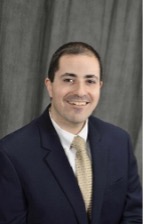
Brandon Sprung, MD
Brandon Sprung, MD, is an assistant professor of medicine at the University of Rochester Medical Center’s gastroenterology and hepatology division, and an associate director of the gastroenterology fellowship training program. Dr. Sprung’s clinical focus is general GI with a strong interest in inflammatory bowel disease. He received his medical degree from Stony Brook University School of Medicine, did his internal medicine residency at Yale University’s school of medicine, and completed his fellowship at the University of Rochester.
Chapter 10 – Gastrointestinal Motility
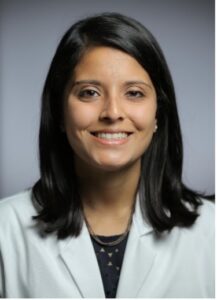
Ami Patel, MD
Ami Patel, MD, is an assistant professor of medicine at Duke University’s school of medicine. Dr. Patel diagnoses and treats problems of the GI tract including Crohn’s disease and gastroesophageal reflux disease and the impact of diet and nutrition on GI health.
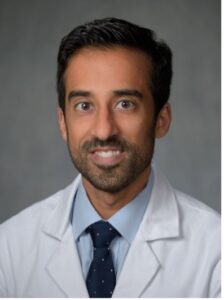
Nitin Ahuja, MD
Nitin Ahuja, MD, MS is an assistant professor of clinical medicine in the division of gastroenterology and hepatology at the University of Pennsylvania. Dr. Ahuja also serves as co-director of the program in neurogastroenterology and motility and associate program director of the gastroenterology fellowship.
Chapter 11 – Gastrointestinal Infections of the Small Intestine and Colon

Sarah McGill, MD
Sarah McGill, MD, is a gastroenterologist and endoscopist with the University of North Carolina’s school of medicine. Dr. McGill is a nationally recognized expert on advanced techniques in colonoscopy to prevent colorectal cancer and the use of fecal microbiota transplant to treat Clostridioides difficile infection (C. diff). She has ongoing research in these areas and has received grant funding from the National Institutes of Health and the Lineberger Cancer Institute. Her areas of research interest include colon cancer screening and prevention, advanced techniques in colonoscopy, C. diff, fecal microbiota transplantation, and alpha-gal mammalian meat allergy.

Melissa Hershman, MD
Dr Melissa Hershman is an Assistant Professor at Oregon Health and Science University. She completed her gastroenterology training and served as chief fellow at the Icahn School of Medicine at Mount Sinai Morningside/West/Beth Israel. Dr Hershman enjoys the plethora of challenges and diversity of pathology in caring for patients as a general gastroenterologist at one of the Pacific Northwest’s largest tertiary care centers.
Chapter 12 – Gastrointestinal Bleeding

Hamita Sachar, MD
Hamita Sachar, MD, is an assistant professor medicine at Yale University’s school of medicine. Dr. Sachar specializes in diagnosing and treating complications of the GI tract including Crohn’s disease and gastroesophageal reflux disease and the impact of diet and nutrition on GI health. She received her medical degree from University at Buffalo’s school of medicine.
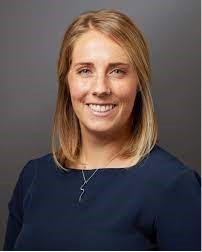
Michelle Hughes, MD
Michelle Hughes, MD, is a gastroenterologist at Yale University’s school of medicine, and works closely with its fellows. Dr. Hughes specializes in GI bleeding, inflammatory bowel diseases, evaluation and management of nutritional disorders, removal of foreign bodies, and diagnostic workup of malignancies of the GI tract, and has an expertise in esophagogastroduodenoscopy (a diagnostic endoscopic procedure for the upper digestive tract, also known as EGD), colonoscopy, feeding tube placement and removal, and video capsule endoscopy. She earned her MD with honors from Albany Medical College, completed an internal medicine residency at Boston Medical Center and a fellowship at the University of Rochester Medical Center.
Chapter 13 – Inflammatory Bowel Disease

Jason Ken Hou, MD, AGAF
Jason K. Hou, MD, AGAF, is a gastroenterologist affiliated with Houston Methodist Hospital and Baylor St. Luke’s Medical Center. Dr. Hou’s specialties include diagnosing and treating digestive disorders, such as stomach pain, ulcers, reflux, constipation, and Crohn’s disease. He received his medical degree from McGaw Medical Center of Northwestern University.

Bharati Kochar, MD
Bharati Kochar, MD, is a gastroenterologist at Massachusetts General Hospital with a specialty in treating inflammatory bowel disease (IBD). Dr. Kochar has a career development award from the Crohn’s and Colitis Foundation to study pharmacoepidemiology of biologic agents in older adults with IBD. She received a medical degree from Brown University, completed an internal medicine residency at Johns Hopkins Hospital, and GI fellowship with advanced training in IBD at the University of North Carolina in Chapel Hill.
Chapter 14 – Gastrointestinal Cancers
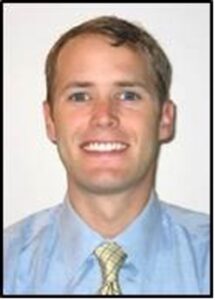
Seth Crockett, MD, MPH, AGAF
Seth Crockett is a gastroenterologist and clinical epidemiologist at the University of North Carolina’s school of medicine. Dr. Crockett’s research focuses on GI cancer epidemiology, screening and prevention of colorectal cancer, and colonoscopy quality including the risk factors, natural history, and endoscopic detection and removal of serrated polyps in addition to other precancerous lesions of the colorectum. Dr. Crockett is a co-investigator on a National Cancer Institute initiative to improve colorectal cancer screening rates among underserved populations in North Carolina. He is also the lead author of AGA guidelines on opioid-induced constipation and acute pancreatitis.

Aimee Lucas, MD, MS, AGAF
Aimee L. Lucas MD, MS, AGAF, is an associate professor of medicine in the Henry D. Janowitz division of gastroenterology at the Icahn School of Medicine at Mount Sinai. Dr. Lucas’ clinical practice encompasses the full spectrum of digestive disorders and endoscopy with particular interest in hereditary cancers. Her research interest is in developing screening regimens to detect early pancreatic cancer and precancerous lesions in high-risk patients with family history of pancreatic cancer or genetic cancer syndromes. Her work has been published in numerous gastroenterology and oncology journals, and she is a recipient of the NIH KL2 Translational Faculty Research Scholar Award and a Career Development Award from the American Cancer Society. Dr. Lucas’s education includes an undergraduate degree from Brown University, a medical degree from Yale University’s school of medicine, a Howard Hughes Medical Institute Research Fellowship, internal medicine training at New York-Presbyterian Hospital/Columbia University, a fellowship from Columbia University.
Chapter 15 – Nutrition, Obesity and Eating Disorders

Octavia Pickett-Blakely, MD
Octavia E. Pickett-Blakely, MD, is a gastroenterologist affiliated with Hospitals of the University of Pennsylvania – Penn Presbyterian and Penn Presbyterian Medical Center. Dr. Pickett-Blakely is also an associate professor of clinical medicine and the director of the GI nutrition, celiac sprue, and obesity program at Penn Medicine. Her specialties include diagnosing and treating digestive disorders, such as stomach pain, ulcers, reflux, constipation, and Crohn’s disease. She received her medical degree from the University of Maryland School of Medicine.
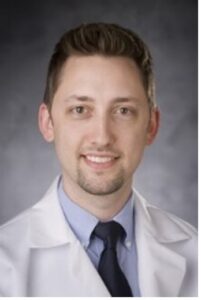
Justin Crocker, MD
Justin Crocker, MD is a gastroenterologist affiliated with Duke Health Raleigh Hospital and Duke University Hospital. Dr. Crocker has extensive experience with pancreatic diseases and specializes in diagnosing and treating digestive disorders including stomach pain, ulcers, reflux, constipation, and Crohn’s disease. He graduated from Virginia Commonwealth University’s school of medicine in 2008.
Chapter 16 – Issues in Pediatric Gastroenterology

Michael Winter, MD
Michael Winter, MD is a gastroenterologist affiliated with Dartmouth Hitchcock Medical Center, and an assistant professor of medicine with the Geisel school of medicine at Dartmouth University. Dr. Winter’s areas of focus include inflammatory bowel disease (IBD) and transition of care from pediatric to adult GI medicine. He received his medical degree from Tufts University, a combined internal medicine and pediatrics residency at the University of Rochester Medical Center, and a fellowship in advanced IBD at Dartmouth Hitchcock Medical Center.

Deborah Goldman, MD, AGAF
Deborah Goldman, MD, AGAF, is an assistant professor of pediatrics at the University of Minnesota. Dr. Goldman’s areas of interest include celiac disease, motility disorders, inflammatory bowel disease, and chronic abdominal pain.
Chapter 17 – Small Bowel Disease

Iris Vance, MD
Iris Vance, MD, is a gastroenterologist with Duke Health. Dr. Vance treats a wide range of GI conditions with a focus on small bowel diseases including celiac and obscure GI bleeding. She received her medical degree from the University of Virginia and completed her internal medicine training and GI fellowship at Duke University.

Justin Sewell, MD, PhD, MPH
Justin Sewell, MD, PhD, MPH, is professor of medicine at the University of California San Francisco and medical director for the division of gastroenterology at Zuckerberg San Francisco General Hospital. Dr. Sewell has expertise in inflammatory bowel disease care for disadvantaged populations and doctoral training in medical education.
Chapter Question Authors Financial Disclosures
Chapter 1 – Esophageal Disorders
Rena Yadlapati, MD
Consulting: Ironwood Pharmaceuticals, Medtronic, Phathom, StatLink
Grant/Research Support: Ironwood Pharmaceuticals Medtronic
Board Membership: RJS Mediagnostix
Bryan Sauer, MD, AGAF
Consulting Takeda Pharmaceuticals
Watermark Research Partners:
Chapter 2 – Acid Diseases of the Stomach
David Leiman, MD
Speaking and Teaching: Medtronic
Grant/Research Support: Takeda
John Clarke, MD, AGAF
Advisory Committees or Review Panels: Alnylam, Isothrive, Medtronic, Pfizer, Regeneron, Sanofi
Grant/Research Support: Ironwood
Chapter 3 – Pancreatic Physiology and Disease
Darshan Kothari, MD
Disclosed no relevant financial relationships
Aparna Repaka, MD
Disclosed no relevant financial relationships
Chapter 4 – Diseases of the Biliary Tract
Daniel Strand, MD
Disclosed no relevant financial relationships
Dushant Uppal, MD
Disclosed no relevant financial relationships
Chapter 5 – Viral Hepatitis
Janice Jou, MD, MHS
Disclosed no relevant financial relationships
Nicolas Intagliata, MD
Disclosed no relevant financial relationships
Chapter 6 – Metabolic, Hereditary, Inflammatory, and Vascular Diseases of the Liver
Mike Kriss, MD
Disclosed no relevant financial relationships
Jonathan Stine, MD
Disclosed no relevant financial relationships
Chapter 7 – Cirrhosis and Liver Transplantation
Matthew Stotts, MD
Disclosed no relevant financial relationships
Kathleen Viveiros, MD
Disclosed no relevant financial relationships
Chapter 8 – GI Diseases in Pregnancy
Rich Bloomfeld, MD
Speaking/Teaching: AbbVie
Claire Meyer, MD
Disclosed no relevant financial relationships
Chapter 9 – Diarrhea and Constipation
Stacy Menees, MD
Disclosed no relevant financial relationships
Brandon Sprung, MD
Disclosed no relevant financial relationships
Chapter 10 – Gastrointestinal Motility
Ami Patel, MD
Disclosed no relevant financial relationships
Nitin Ahuja, MD
Consulting: GlaxoSmithKline Consumer Healthcare, Medtronic
Advisory Committees or Review Panels: Laborie, Takeda
Grant/Research Support: Nestle, Vanda Pharmaceuticals
Chapter 11 – Gastrointestinal Infections of the Small Intestine and Colon
Sarah McGill, MD
Grant Support: Olympus America, Finch Pharmaceuticals, Abbott Laboratories
Melissa Hershman, MD
Disclosed no relevant financial relationships
Chapter 12 – Gastrointestinal Bleeding
Hamita Sachar, MD
Disclosed no relevant financial relationships
Michelle Hughes, MD
Consulting: Motus, GI
Chapter 13 – Inflammatory Bowel Disease
Jason Ken Hou, MD, AGAF
Grant/Research Support: Arena, Celgene, Eli-Lilly, Genentech, Janssen, Lycera, Pfizer, Redhill Biosciences
Bharati Kochar, MD
Advisory Committees or Review Panels: Pfizer, Inc
Chapter 14 – Gastrointestinal Cancers
Seth Crockett, MD, MPH, AGAF
Disclosed no relevant financial relationships
Aimee Lee Lucas, MD, MS, AGAF
Consulting:
Grant/Research Support: Immunovia AB:
Chapter 15 – Nutrition, Obesity and Eating Disorders
Octavia Pickett-Blakely, MD
Disclosed no relevant financial relationships
Justin Crocker, MD
Disclosed no relevant financial relationships
Chapter 16 – Issues in Pediatric Gastroenterology
Michael Winter, MD
Consulting: Precision Medicine
Advisory Committee or Review Panel: AbbVie, Brystol Myers Squibb
Deborah A. Goldman, MD, AGAF
Disclosed no relevant financial relationships
Chapter 17 – Small Bowel Disease
Iris Vance, MD
Disclosed no relevant financial relationships
Justin Sewell, MD, PhD, MPH
Disclosed no relevant financial relationships


